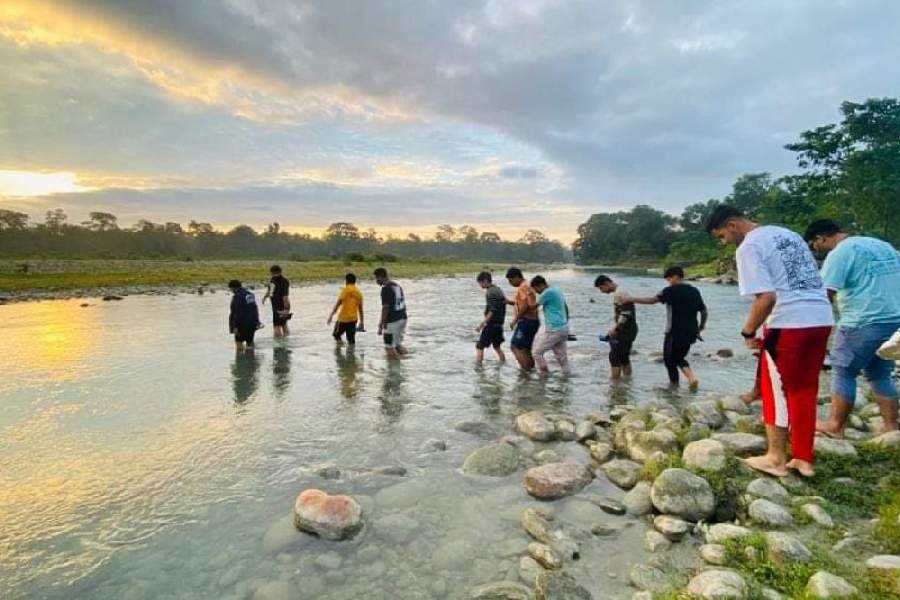A tour without phones for students: School enforces detox so pupils live the moment


Over 40 students of a school in Barrackpore went on a four-day trip to the Dooars but without any phones or other smart devices.
A chorus of “No, Ma’am” greeted a teacher at Douglas Memorial Higher Secondary School when she announced that phones were not allowed on the trip, about a month before they were to set out.
Some got upset and some pleaded with the teachers to allow them to carry their phones, but the school remained strict.
All the 47 Class XI students had to hand over their luggage a few days in advance for the school to conduct a thorough check and be sure that the girls and boys were not carrying any “unwanted items” or excess baggage.
The school said it wanted them to enjoy nature and connect with each other, rather than make real-time posts of the trip.
Taking pictures has become a global obsession now and it is not restricted to children alone.
People are often so busy taking photographs that they run the risk of losing out on the essence of the moment or the place.
“Students are so much into their phones that whatever they do, it immediately gets uploaded online. We did not want that. It is also a way of instilling discipline among them and encouraging more social interaction,” said Sonia Gidla, principal, Douglas Memorial Higher Secondary School.
After the pandemic, phones have become an inseparable part of a teenager’s life.
Almost everyone has their individual device and parents are assured that they can connect with them quickly when they go for tuition or to a friend’s.
For this trip, the parents were in touch with the teachers and they could connect with their children through the teachers’ phones, if needed.
Mohit Lahoti, 16, does not remember the last time he was without his phone. “We started using the phone during the pandemic and online classes and never gave it away. It’s not that we are using it only for studies. Even when we are not doing anything, we spontaneously swipe the screen, watch videos, reels or social media posts,” said Mohit.
This trip was an exception for Mohit and his friends, because of the digital detox enforced by the school.
“The phone is not just for communication now. It is used for various purposes. We explained to the students that they need to look at nature rather than YouTube videos,” said Ambalika Chanda De, head of the department of geography, who accompanied the students.
“Since they did not have any devices, they were naturally interacting with each other more.”
The school allowed the students to carry musical instruments so they could play music. “Since we were taking away the phones from them that they are so used to, we had to give them some alternative,” said Chanda De.
The students went to Jaldapara, Gorumara, Bara Dighi tea garden and the Murti river for the educational trip.